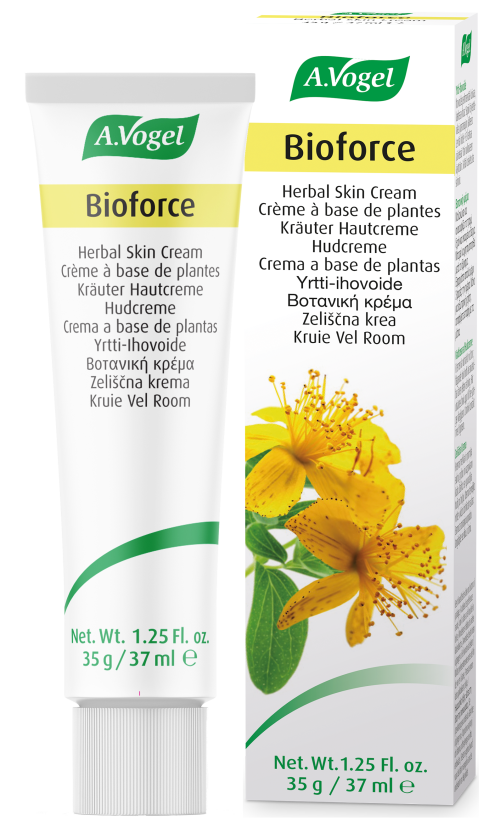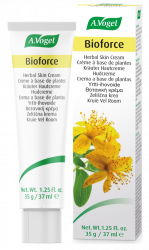What can help protect winter skin?
Keep your skin looking healthy this winter with the following:
- Avoid over-washing
- Moisturise from the inside
- Use barrier cream protection
- Let your skin breathe
- Bounce those rosy cheeks back in!
Read on to find out a bit more about all of these tips.
How does winter weather wreck your skin?
Wintertime can be tough on the skin and harsh weather can often worsen underlying skin conditions such as acne, sensitive skin, rosacea, dry skin, eczema and psoriasis. Cold temperatures can also trigger chilblains and Raynaud's syndrome.
We have entered another lockdown. The hairdressers are closed - again. Swimming pools and gyms are closed - again. All sports and activities involving other people are verboten, so early morning walks are back on the agenda. This means there is darkness, icy winds, rain and hailstones to give the skin a good sandblasting. Plus, that icy cold can make skin chapped and sore. Inside it's all sweaty masks, central heating, dehydration and endless handwashing. No wonder that too many hours indoors can make the complexion dull and lifeless looking. It's a wonder we have any skin left at all. It can be a big battle, keeping yourself looking anyway respectable (with a mop head and a big red nose!). Throw in a few bad lifestyle habits – it's a recipe for an epidermal disaster!
Is your skin condition bad this winter?
Here are some easy-to-follow tips for protecting your skin and keeping your complexion looking fresh.
Avoid over-washing
It's like bad urban planning. When we over-wash it can remove the layer of protective oil or sebum that keeps the skin protected from harsh weather and stuffy indoor air. Too much washing is not just making the skin drier, it can affect the harmless and potentially beneficial bacteria, yeasts, fungi and mites that live on us, known as the skin microbiome.
Changes in skin oiliness or moisture can also affect the pH balance of the skin, which can attract the wrong types of microorganisms instead. Just like when an inner-city is depopulated and the people hastily rehoused elsewhere. The empty houses, if not redeveloped quickly, will simply fill with transient dwellers with less community spirit and usually not the ones the town planners want. These unfriendly microorganisms can make the skin more vulnerable to increased sensitivity and can worsen eczema and dermatitis.
You can be clean and wash daily without throwing the skin out of balance. Try to keep the daily washing to the stinky bits (and your hands of course). It shouldn't be necessary to use soap everywhere. I'm a firm believer in not letting any chemical-ridden soap or detergents anywhere near the genitals. Water only is fine with delicate skin. Make sure that your bath or shower is not too hot. Use soap that is gentle and natural so that it won't dry out the skin too much.
Moisturise from the inside
Skin needs both oil and water to keep itself winter-protected, smooth, supple and well-moisturised. The water bit is simple: ask yourself if it's possible that you are under-hydrated? Are your lips are frequently dry and crinkled? Is your urine darker than a very pale yellow? If yes, then I heartily recommend that you drink more. Aim for one and a half litres a day of good, plain, non-fizzy water.
The good fats that your skin needs are sometimes known as omega oils, or essential fatty acids (EFAs). The body doesn't make this kind of good fat itself, so it's important to get regular portions in our daily diet. Omega 3, in particular, is associated with better wound healing1 and an anti-inflammatory effect, all of which may benefit troubled skin. Here's where to find them:
- Omega 3 in oily fish (salmon, tuna, mackerel), in seeds (chia and flax/linseed) and in walnuts.
- Omega 6 in nuts, seeds, salad oils (like olive oil and rapeseed oil) and in evening primrose oil
Are you a bit squeamish about eating fats or are you confused about which oils and fats are good and bad? Here's a helpful article.
My Self-Care Tip: Skin protection and avoiding a dull lifeless complexion this winter
Watch my video for a quick rundown of tips to brighten up your skin in winter.
Use barrier cream protection
We all wear coats, hats and gloves to protect us from the cold. Why not wear additional protection on your exposed skin as well? My hands would probably fall off in the winter if I didn't take some steps to ensure that they were nourished and protected. Like many of you (I'm sure), constant handwashing and sterilising takes its toll on my skin's natural protective barrier. For me, any sudden change in temperature will trigger dermatitis, which can cause scaling, irritation and painful cracking on my knuckles. Other people will find that their lips can crack easily, making the risk of cold sores more likely.
It's super important to grease yourself up and keep the skin from getting damaged. Without wanting to generalise, I have found that some men can be reluctant to use 'cosmetic' preparations. Their skin can get very sore indeed before they will look to treat their painful, weather-beaten paws and crusty lips. I like to have three products on hand during the winter months so that I am not reduced to weeping when asked to use a hand sanitiser.
- An everyday moisturiser for my hands that is rich but not too greasy - I want to be able to open doors and not leave a greasy trail of slime after me. I try to remember to apply it after I wash my hands. Neem cream is one I use regularly. Neem is a tropical tree, the oil has anti-microbial properties and a long history of use for troubled skin conditions.
- A proper greasy rich emollient that I can use for lips and knuckles during the day. I can also use this like a little hand and foot spa treatment before bed. I slather it on, pop on cotton gloves and socks and wake up with baby skin – magic! Bioforce cream is my favourite all-in-one.
- Lip protection, particularly when I go out or when my lips start to peel. I need to be vigilant as I am prone to cold sores. Essential oils like tea tee and lavender are lovely ingredients in lip protection as they offer some anti-microbial benefits. Propolis is also fantastic. It's used by bees in the hive to keep it free from infection and has been found to inhibit the cold sore virus2.
Let your skin breathe
A function of the skin that is often forgotten is elimination. The body's biggest organ releases salts and nitrogen that the body wants to get rid of3. Dead skin cells are constantly shedding (much of what we call dust is made of old skin – ugh!). It's easy for these to block oil glands on the skin and cause blockages that end up being pimples.
Always wash off makeup and city grime before bed. Clean skin makes it easier for the skin to detox while you get your beauty sleep. This winter we have mask-wearing to contend with and, unfortunately, some masks can get quite sweaty and uncomfortable, particularly if worn for long periods. 'Maskne' is what they are calling mask-related pimples. A mask can chafe and rub damp skin, dislodging dead skin cells and blocking pores. You can avoid this by choosing a mask made from breathable natural fabric such as linen, cotton or silk. It's also a good idea to change your mask when it gets damp. I like to carry a few spares with me. The reusable ones should be washed frequently to keep them clean and free from bad bacteria, fungi and viruses!
Bounce those rosy cheeks back in
Children's healthy-looking, rosy cheeks are an indication of their good circulation. The colour in their skin is visible blood flow which is carrying oxygen and vital nutrients to all of the body's cells. Cold weather affects blood flow as the body tries to conserve heat by reducing blood flow to outer edges like fingers and toes. They can get quite icy and uncomfortable for those with Raynaud's syndrome or chilblains. A winter complexion can lose its glow and look pinched and kind of grey. Not a great look on video calls.
The best way to get the blood flow going is to pump it with your muscles every day. Move around more. Get up every hour and do a few jumping jacks (or are they called star jumps now?). If you can do something a bit sweaty like a run, a manic hoovering session or mischief with your partner – even better!
Spices are really warming and benefit circulation. Try and work hot spices like cayenne pepper into your soups and stews, or even on your roast potatoes. Some of my favourite winter teas are Yogi's Sweet Chilli Tea or Pukka's Three Ginger tea – so warming.
References
1. https://pubmed.ncbi.nlm.nih.gov/18471252/









